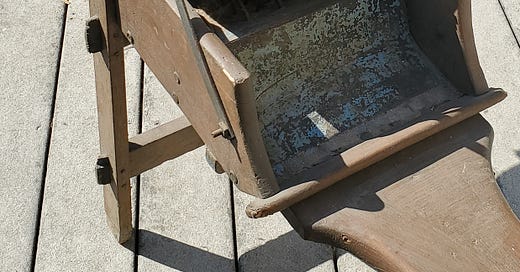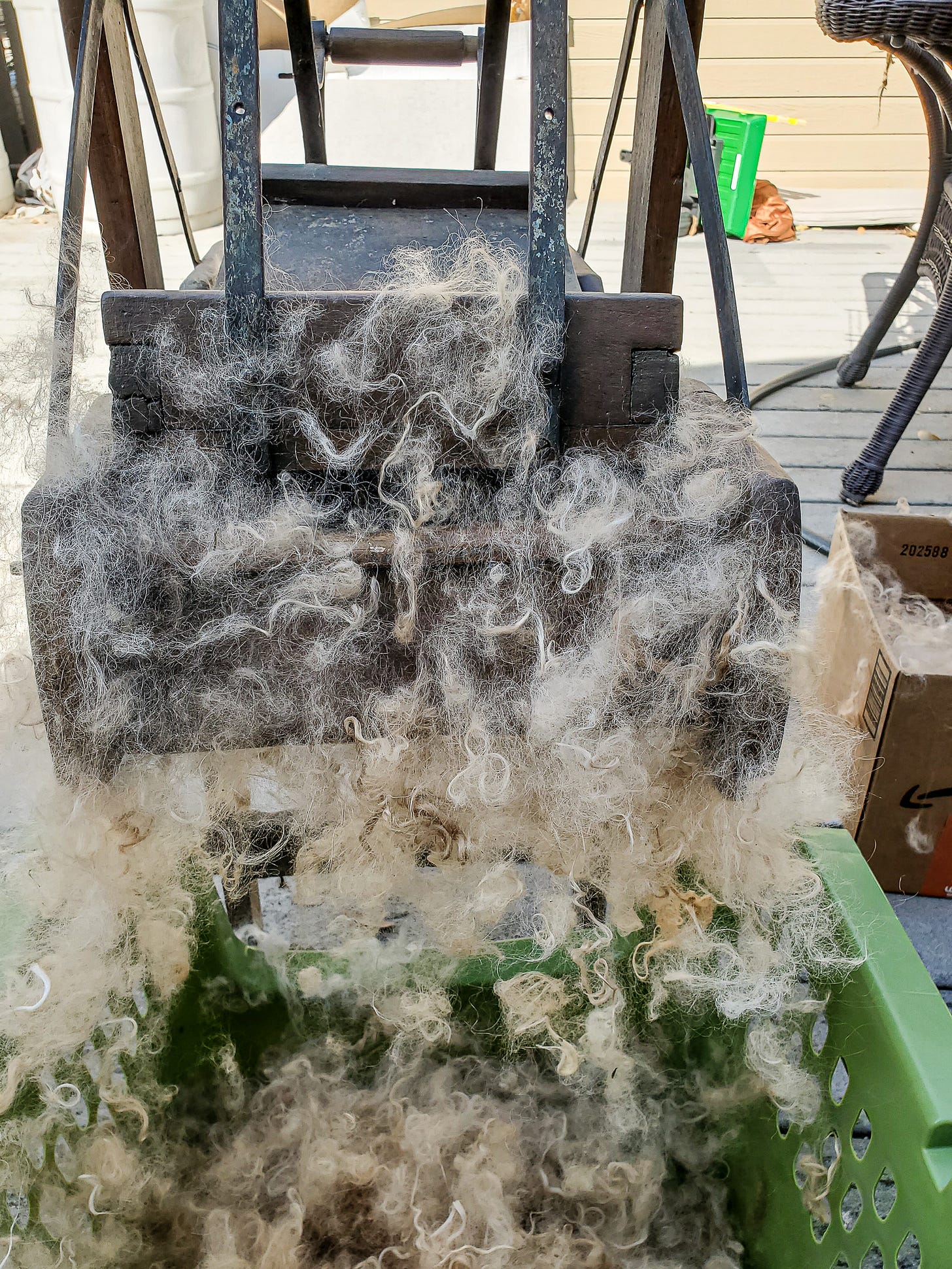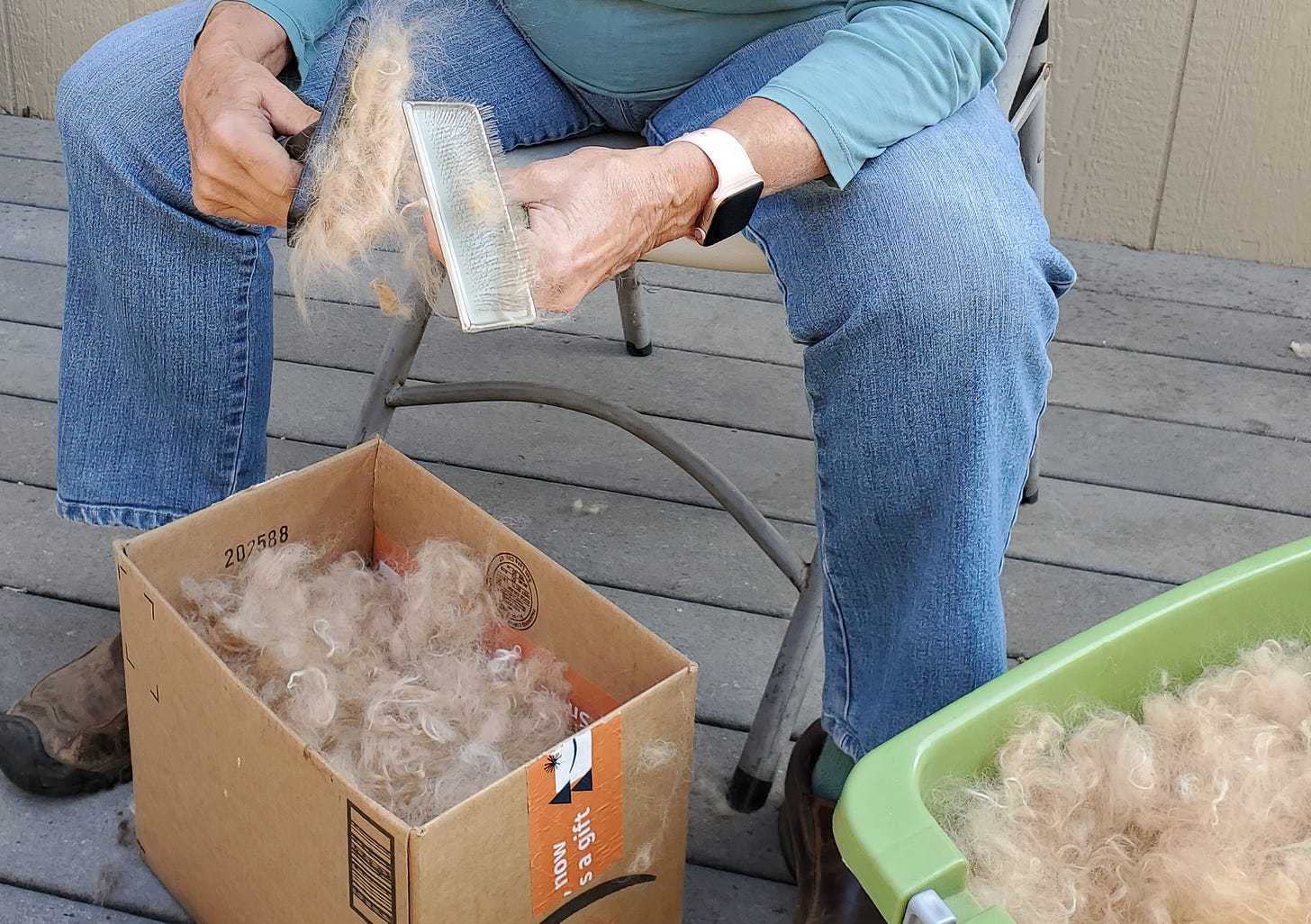Fiber-Pickin' Blowout
Cindy & I brought a 100-year-old, manually run picker machine onto the patio to sit in the sun & fresh air while "picking" the previously cleaned & dried alpaca fiber. Picking (also called Pin drafting) - the first step of fiber processing - is necessary in order to pick the fiber apart before it can be carded & turned into yarn.

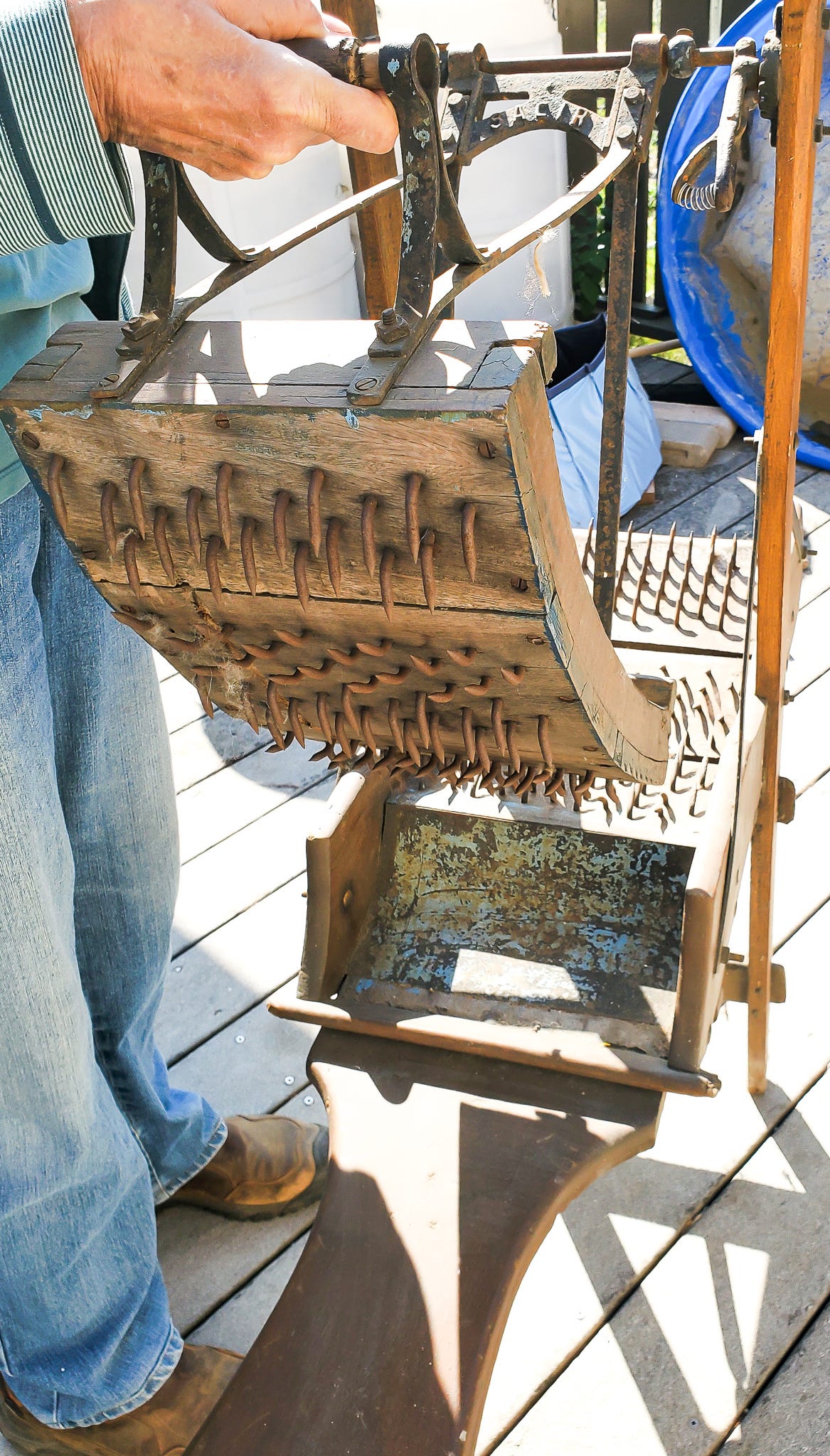
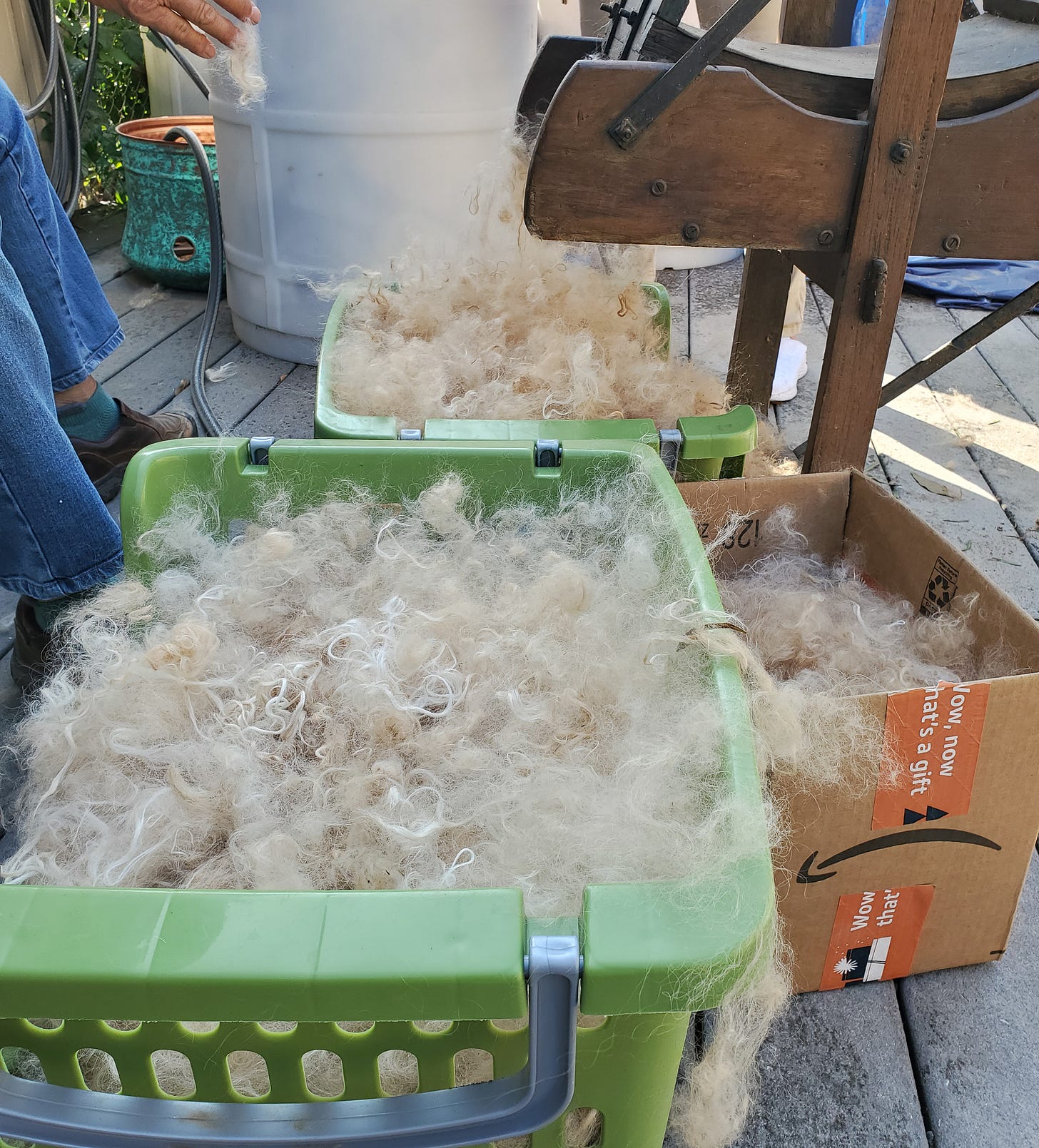
It surprised me to discover small-scale picking & combing machines, though now using electricity, haven't changed design-wise from the manual tools used for a millennium. I was glad to see some much-needed safety features built in!
Ramella - Picker - Fiber opener for fiber mills and textile laboratories
Sherrie, a friend of Cindy's, dropped by. While I continued putting fleece thru the picker, Cindy demonstrated carding using some of the picked fiber. The three of us brainstormed possible products that could be made using alpaca fiber & dreamt of options for creating a local mill.
Currently there are tens of thousands of pounds of alpaca fleece shorn every year than aren’t being processed due to lack of milling infrastructure. It remains in barns & other storage buildings, sometimes for years. Sometimes it’s composted or sent to the landfill due to lack of storage space. Fibers sent to mills often have a 12-to-18-month processing time! The small amount that is processed is usually done via local artisans using antiquated tools & processes pictured in this journal entry. What a travesty!
Afternoon Alpaca Snacks
The day ended with delightful smells mixing oat & molasses treats for the females & babies & enjoyable task of pouring the treats into the small hanging troughs (repurposed rain gutters) for very eager alpacas.
Past Week's Research
Since last week's journal entry of Alpaca Adventures describing washing about 5 pounds using a bucket, I spent a few days researching how wool fibers are cleaned on an industrial scale. Not surprisingly, China & Italy seem to be the primary equipment suppliers, whereas 75-100 years ago, the US was one of the primary suppliers of industrial scale milling equipment. The loss of US-based mills, along with the advent of synthetic fibers, demand for wool has significantly declined. Combined, these have been a devastating double-whammy to local fibershed economies & communities. I was aware local manufacturing of hard goods (cars, washing machines, furniture, etc.) took a toll on local communities, but until now, I didn't connect the fiber-based fabric & clothing industry as being equally hard hit. I've just started reading a recent study sponsored by Fibershed.org called The Wool Mill Vision Project. Though the study focuses on sheep wool processing, many of the mills limited access issues are the same for alpaca fleece. I'm looking forward to learning what can be applied to the backlog of unprocessed alpaca fleece. Stay tuned.
